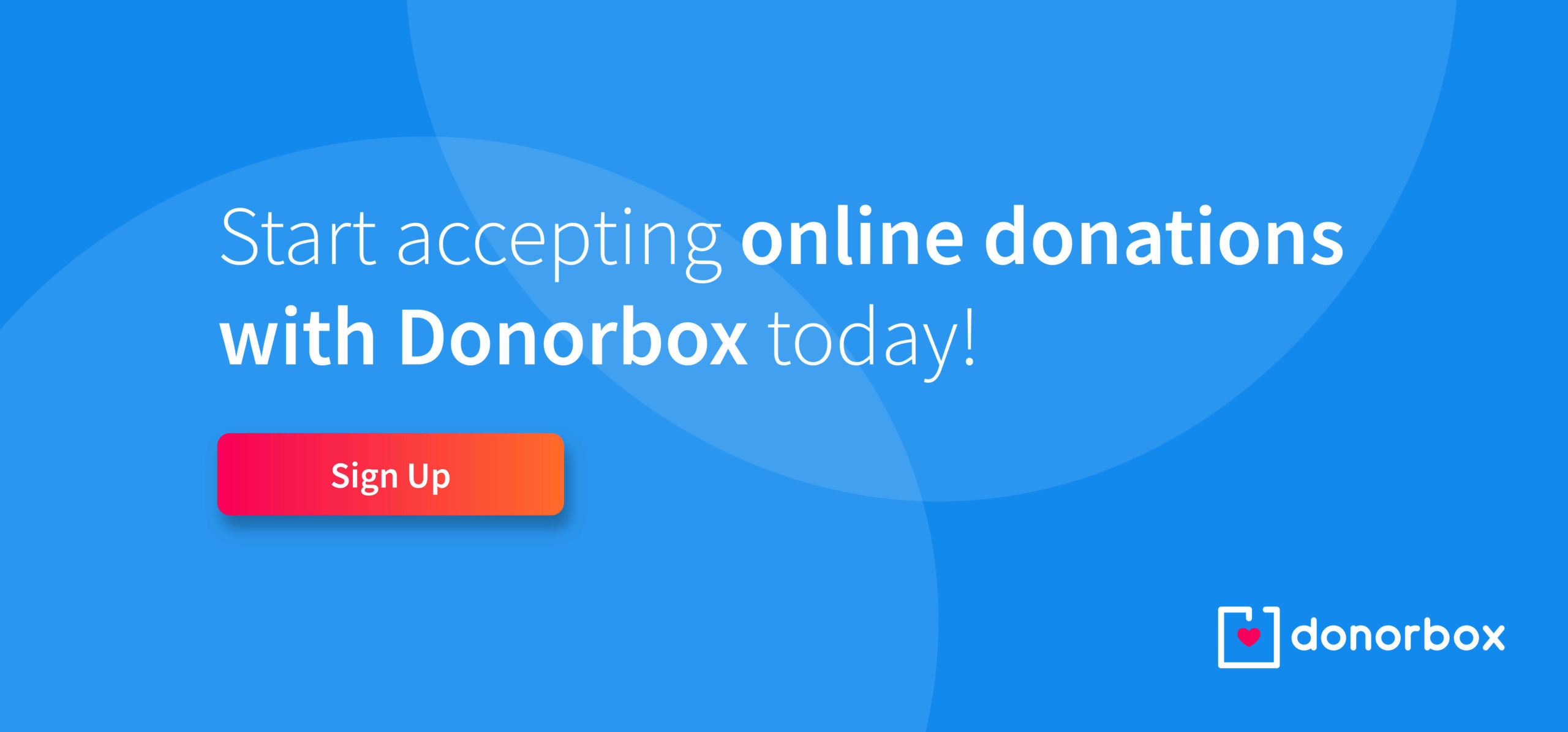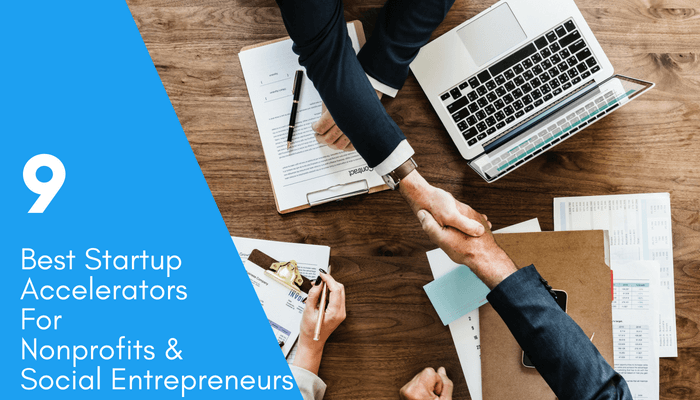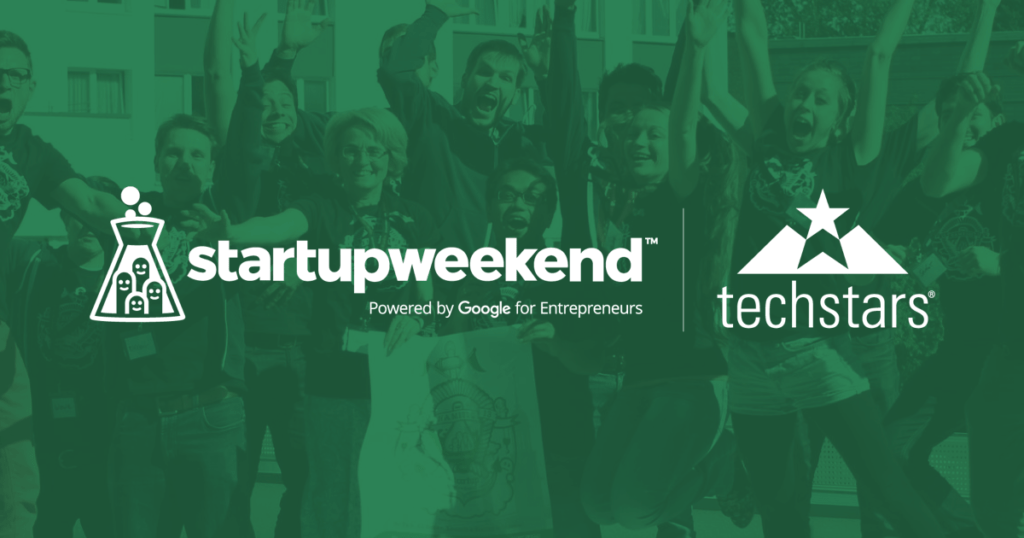Startup accelerators are nothing new. Dotted around the world, big and small, startup accelerators in their various forms and shapes have propelled thousands of startups forward. And for a reason.
Startup accelerators for nonprofits can offer a vast range of services, that can include:
- investment;
- mentorship;
- peer-to-peer coaching;
- office space;
- training;
- in-kind sponsorship;
- access to networking events;
- product or service development support;
- continuing support as the startup leaves the accelerator.
The startup accelerator industry has been taking the world by storm in the last decade. It is continuing to grow in the United States and Canada, which are leading in investments. Europe leads with the most accelerator programs, but the accelerator industry is also expanding rapidly in Latin America, where a mix of private and public capital is fuelling a surge in startups and accelerators.
Until very recently, nonprofits have not had the opportunity to join accelerators. Luckily, this has been changing. Nowadays, numerous accelerators have started increasingly turning to nonprofits or even focusing exclusively on them (albeit the second scenario is still rare).
Although nonprofits operate differently from corporate organizations, there is a lot to learn from the way for-profit organizations plan, deliver and evaluate their products and services.
Here are some of the top nonprofit accelerators you can consider if you’re a nonprofit or a social entrepreneur:
1. Fast Forward
*nonprofits only*
Fast Forward is one of a kind. They are the only tech nonprofit accelerator, supporting entrepreneurs who are using technology to advance social impact.
All participants must be nonprofits leveraging technology to address problems in arts/culture, education, environment, food/agriculture, health/healthcare, human rights, poverty alleviation/economic development, or public service/civic engagement.
They’ve already raised over $56 million in funding to accelerate their ventures. They pride themselves in embracing diversity (with over 84% of their organizations have a founder who is a woman or person of color).
Fast Forward’s accelerator program takes place in San Francisco, CA during the summer. All organizations receive a $25,000 grant, 13 weeks of training, and connections to 100 high-caliber mentors.
For-profits cannot apply since, as Fast Forward says it, “their initial focus in on innovative solutions addressing problems for which there is no market demand.”
Their content is uniquely adapted to the nonprofit needs. For example, fundraising strategies are different for nonprofits at every stage of the fundraising process than they are for their for-profit peers. While for-profit accelerators can provide invaluable insights to nonprofits, Fast Forward also focuses on topics specific to nonprofits eg. board development, governance, leveraging volunteers etc.
Apply for Fast Forward here.
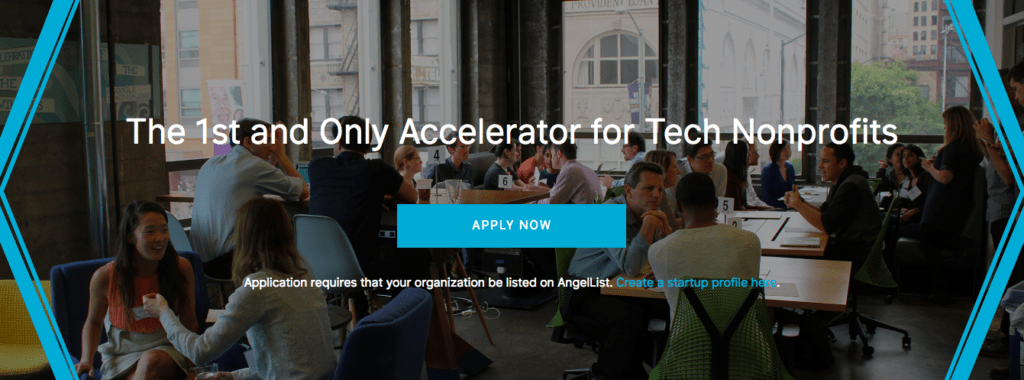
2. Y Combinator
*for-profits and nonprofits*
Y Combinator is a prestigious accelerator that has seen the likes of Airbnb and Dropbox join their program. They have, in fact, created a model for funding early-stage startups.
Founded in 2005 in California, they remain the largest (and arguably the best) accelerator in the United States.
Twice a year they invest a small amount of money ($120k) in a large number of startups. The startups move to Silicon Valley for 3 months, during which they work intensively with them. Each cycle culminates in Demo Day, when the startups present their companies to a carefully selected, invite-only audience.
Y Combinator offers high-quality mentorship. Founders can have as many hours of mentorship as they need, even after the accelerator program ends. Furthermore, they also have a huge and active alumni network.
Although it’s not working exclusively with nonprofits, Y Combinator has admitted the first nonprofit to its program in 2013.
Apply to Y Combinator here.
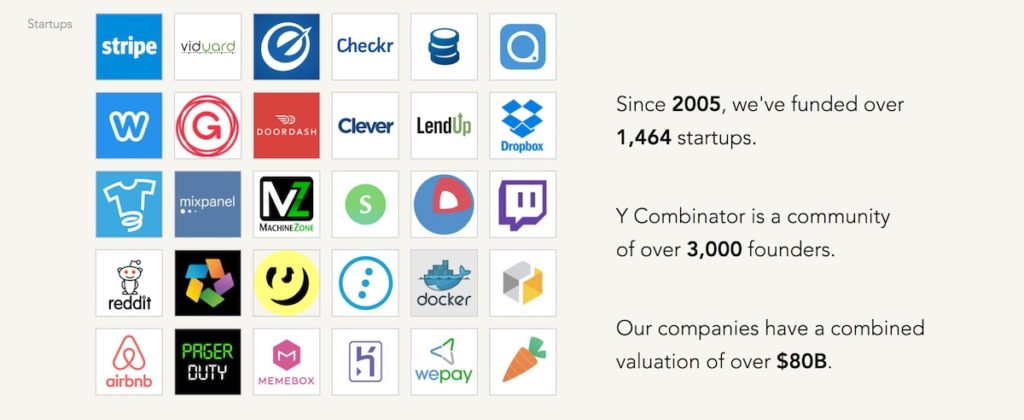
3. Startup Weekend
*for-profits and nonprofits*
Similarly to the Y Combinator, Startup Weekend generally works with for-profit organizations. Startup Weekend hosts weekend events all around the world for ad-hoc teams to develop and pitch ideas.
However, several times per year, Startup Weekend focuses on philanthropic events, where both for-profit and nonprofit organizations can present their solutions.
Startup Weekend has grown into an organization with a global presence. As of December 2016, Startup Weekend has reached 135 countries, involving over 210,000 entrepreneurs. Startup Weekend is one of the Techstars Startup Programs, alongside Startup Week and Startup Digest.
The weekend is structured as follows:
First Day: Meet, Pitch & Team Up (Dinner & Networking, Choosing a Project, Pitching, Joining a Team)
Second Day: Learn & Work (Working with mentors and experts)
Third Day: Present & Choose (Presenting to the judges & Celebration)
Apply to Startup Weekend
here.
4. Mass Challenge
*for-profits and nonprofits*
Mass Challenge is a nonprofit itself. They call themselves “the most startup-friendly accelerator on the planet” due to their “no equity” policy.
“To date, MassChallenge has supported 617 startups who have raised over $700M in outside funding, have generated more than $400M in revenue, and have already created over 4,800 jobs.”
Each year, MassChallenge admits over 300 finalists to its three- to four-month accelerator program across its five locations: Boston, Israel, Mexico, Switzerland, and the UK. These accelerators provide startups with free office space, mentorship and more.
They welcome startups from all industries, from high tech, clean tech, and social impact to retail and life sciences.
According to an MIT study, participating in MassChallenge more than doubles a startup’s likelihood of raising significant funding and reaching 15 employees.
A startup with any idea, from anywhere in the world can apply, but the challenge for the organization is to be focused on high-impact, high-growth ideas.
Apply to Mass Challenge here.
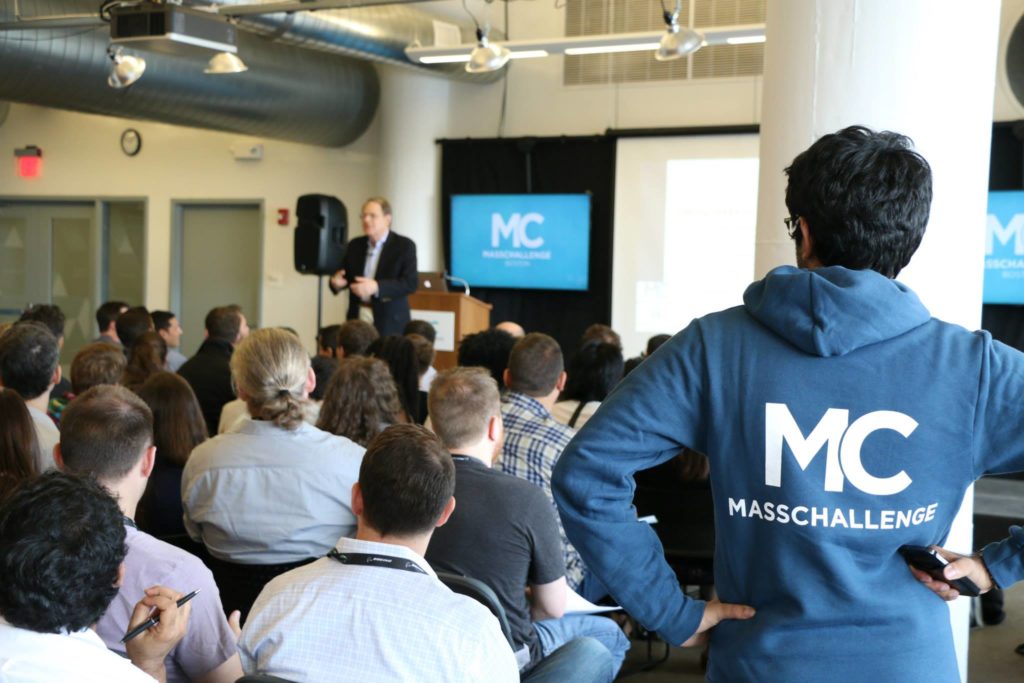
5. Civic Accelerator
*for-profits and nonprofits*
The Points of Light Civic Accelerator is seeking innovative social ventures that are working to create greater, more accessible pathways to economic opportunity.
Applicants should be early stage for-profit organizations and nonprofits that include people as part of the solution to critical social problems.
Civic Accelerator is a 10-week long, boot camp-style program which convenes 10-15 teams in person and online with the goal of equipping each venture to seek investments and scale their social innovation.
Their current focus is on supporting U.S.-based start-ups, for-profit and nonprofit, although the startup’s customer or user base can be anywhere in the world.
The Civic Accelerator provides funding, mentoring, entrepreneurial education and more to social entrepreneurs.
Their curriculum focuses on revenue generation, funding strategies, and customer acquisition. Peer support and mentoring are available, and two of the most promising ventures each receive a $50,000 investment.
They also offer 2-day Rapid Innovation Summits. These are hands-on boot camps teaching participants how to apply innovation best practices and design thinking in order to make better decisions and solve challenges more effectively.
Apply to Civic Accelerator here.
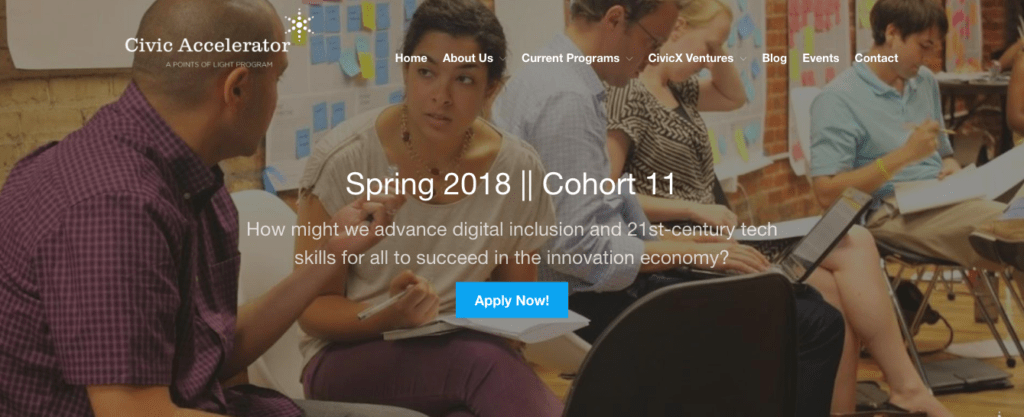
6. Unreasonable Institute
*for-profits and nonprofits*
Unreasonable Institute (UI) focuses on tackling major world issues through cooperation.
Most of their accelerators include 2-3 in-person bootcamps, spaced out over the course of 6-18 months, with ongoing remote support in between.
During the bootcamps, participants attend workshops, engage with mentors in one-on-one deep-dives, build relationships with funders and partners, draft strategic plans, outreach campaigns, and financial models, and connect with a group of peers who are all united around tackling one problem.
During the remote time in between bootcamps, participants check in regularly with mentors.
UI’s accelerators have a slight twist to them. While a lot of other accelerators are very entrepreneur-centric, theirs are very problem-centric and build a coordinated movement of people (companies, foundations, governments etc).
Apply for Unreasonable Institute here.
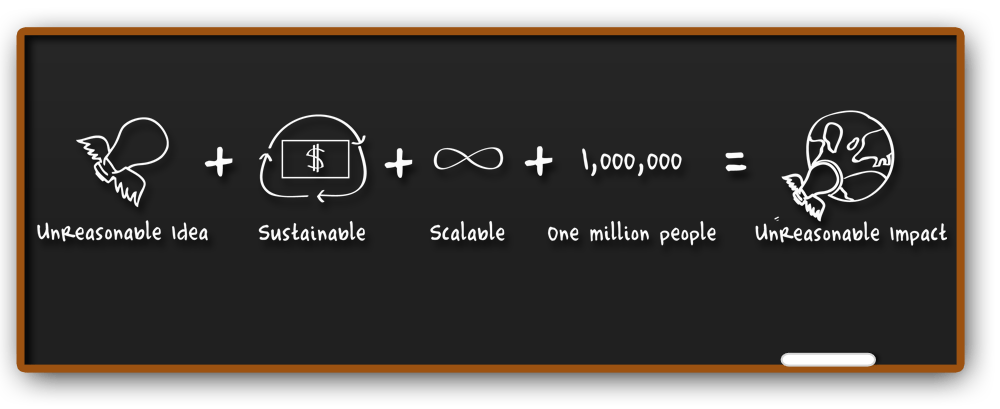
7. NewME
*for-profits and nonprofits*
NewMe was founded in 2011 by Angela Benton. Since then, they have accelerated hundreds of entrepreneurs through their online platform, residential “boot-camp” accelerators, and equity portfolio.
Their online idea accelerator is designed specifically for people who have an idea and don’t know where to start.
The course is 12-weeks long and walks you through step-by-step on how to get your idea going. Each week the founders are taught industry best practices, given specific assignments to complete, and supported with additional resources.
Their one week accelerator in Miami includes living accommodations, meals, and week-long training. They keep their cohorts small, between 8-10 founders. Mornings and afternoons are usually reserved for tactical workshops and coaching, and evenings are focused on insights from experts through the Q&A-based speaker dinners.
Apply for NewME here.

8. SoPact
For European-based startups, SoPact is an excellent choice. SoPact is a collaborative project between Lund University, School of Social Work in Helsingborg, Helsingborg City and the Swedish Agency for Economic and Regional Growth.
The project started in 2016 and has since supported 28 entrepreneurs addressing societal challenges in Sweden and in the world.
Their program starts with an intensive boot camp where participants are introduced to the tools and methods used during the program. Additionally, they are helped to define their needs and challenges.
The beginning of the SoPact program is focused on the business development and becoming financially sustainable in the long term. SoPact helps validate your assumptions by helping you engage with relevant people and organizations.
The second module of SoPact focuses on impact – clarifying what problem you are working to solve, who is your audience and what steps are needed to bring about change.
Lastly, the program focuses on communications.
Applications for the next Accelerator Program opens in May 2018. If you want a notification for when the applications open again, please sign up here.

9. Rally
Rally’s mission is to create positive social change by propelling qualified social entrepreneurs to build their ideas into self-sustainable ventures. They work with social entrepreneurs in the early stages of developing their products or business who are looking for help or guidance.
Their accelerator is a 16-week immersive mentorship-based experience. They offer a collaborative work environment located on the campus of Rollins College in Winter Park, Florida, access to a world-class network and team of mentors that are serial commercial and social entrepreneurs, access to legal, accounting and marketing service professionals, weekly peer gathers, expert panels and one-on-one mentoring sessions.
Rally also offers a guaranteed $25,000 minimum investment to the top venture in the cohort
There is also an additional funding opportunity from the Entrepreneurs in Action Social Enterprise Venture Fund or the Central Florida Foundation Social Enterprise Endowment Fund.
Apply to Rally here.

Conclusion
Everyone needs help. Regardless of the level of your enthusiasm, skills, and knowledge, you should consider applying for an accelerator.
There is an increasing number of programs that recognize the value of supporting nonprofits and social enterprises, where there’s no financial return on investment, but there is a social return on investment.
Most first-time for-profit and nonprofit entrepreneurs make a lot of avoidable mistakes. Accelerators have curriculums that teach you how to put one foot before the other, which catches these mistakes and keep you on course.
Other benefits of joining an accelerator include: comprehensive support from experts and mentors, access to investors, accelerated knowledge and skills development, being a gateway to future donors and partners, giving you a better long-term perspective and a bird’s eye view.
Joining an accelerator can keep you going and moving forward. Interaction with other founders is a powerful motivating force. Finally, you become part of a community and develop long-term relationships.
